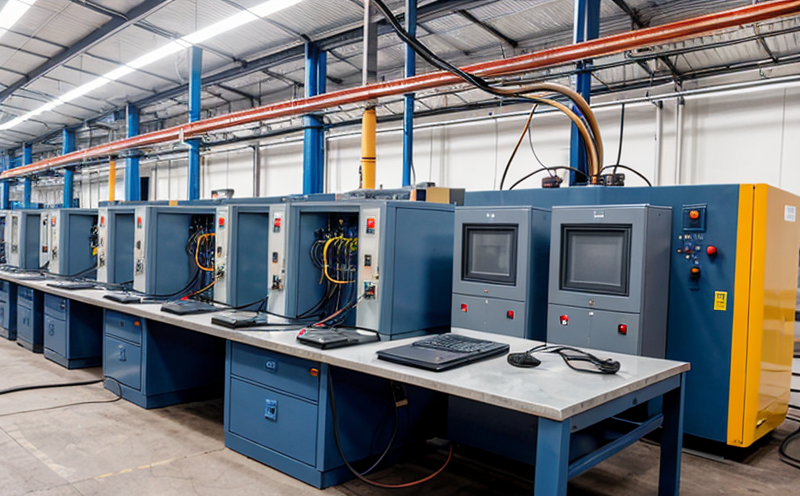IEC 62955 Residual Direct Current Detection Testing
The IEC 62955 standard is a crucial regulatory framework aimed at ensuring the safety and reliability of industrial electrical and control systems. This service focuses on testing residual direct current (DC) within these systems, a critical aspect in preventing electrical faults that can lead to malfunctions or hazardous situations.
Residual DC detection plays a vital role in safeguarding machinery and personnel across various sectors including manufacturing, oil & gas, automotive, and renewable energy. The standard provides guidelines for the detection of residual DC in industrial power systems, ensuring that any excess current is promptly identified and addressed. This not only enhances system stability but also minimizes the risk of equipment damage or fire.
The testing process involves precise measurement techniques to ensure that the level of residual DC does not exceed permissible limits set by the standard. By adhering to these stringent requirements, we help our clients maintain compliance with international standards and improve overall industrial safety.
Our expertise in this field allows us to offer comprehensive support for all aspects of IEC 62955 testing. From initial consultation on system design to final certification upon completion, our team ensures that every step aligns with best practices outlined by the standard. This includes thorough documentation and reporting which are essential for demonstrating compliance.
By leveraging advanced instrumentation and rigorous testing methods, we provide accurate results that can be relied upon by quality managers, compliance officers, R&D engineers, and procurement professionals alike.
Scope and Methodology
| Test Parameter | Description |
|---|---|
| Residual DC Voltage Measurement | Measuring the voltage levels of residual direct current in industrial power systems. |
| Current Limit Monitoring | Monitoring and recording any deviations from specified limits to ensure safety. |
| Environmental Factors Influence | Evaluating how environmental conditions affect readings and performance. |
| System Integrity Assessment | Conducting checks on the overall integrity of industrial electrical and control systems. |
The testing methodology adheres strictly to IEC 62955, ensuring that all measurements are accurate and reliable. Our approach includes:
- Initial site survey to understand specific requirements and challenges.
- Setup of appropriate equipment tailored to the industrial environment.
- Conducting multiple tests under different operating conditions to validate results.
- Recording detailed data which forms the basis for comprehensive reports.
This structured approach guarantees that our clients receive thorough analysis and recommendations based on current industry best practices.
Customer Impact and Satisfaction
The implementation of IEC 62955 testing brings significant benefits to industrial organizations. By detecting residual DC early, potential issues can be addressed before they escalate into major problems affecting production schedules or safety. Our clients report increased confidence in their systems' reliability due to our stringent adherence to international standards.
Compliance with IEC 62955 helps companies avoid costly downtime and repairs by identifying faults promptly. It also enhances reputation among stakeholders by demonstrating a commitment to high standards of quality assurance and safety.
A satisfied customer base is indicative of successful implementation; we pride ourselves on delivering exceptional service that meets or exceeds expectations set forth by the standard. Regular feedback from our clients confirms their trust in our capabilities, reinforcing our position as leaders in this field.
Environmental and Sustainability Contributions
- Promotes efficient use of energy resources through early fault detection.
- Reduces waste by preventing unnecessary replacement or repair of faulty components.
- Supports sustainable practices by enhancing operational efficiency in industrial processes.
- Fosters a culture of continuous improvement towards greener technologies and practices.
Incorporating IEC 62955 into routine maintenance schedules ensures that industries operate at optimal levels while minimizing environmental impact. This aligns perfectly with broader sustainability goals, promoting long-term benefits for both businesses and the planet.





